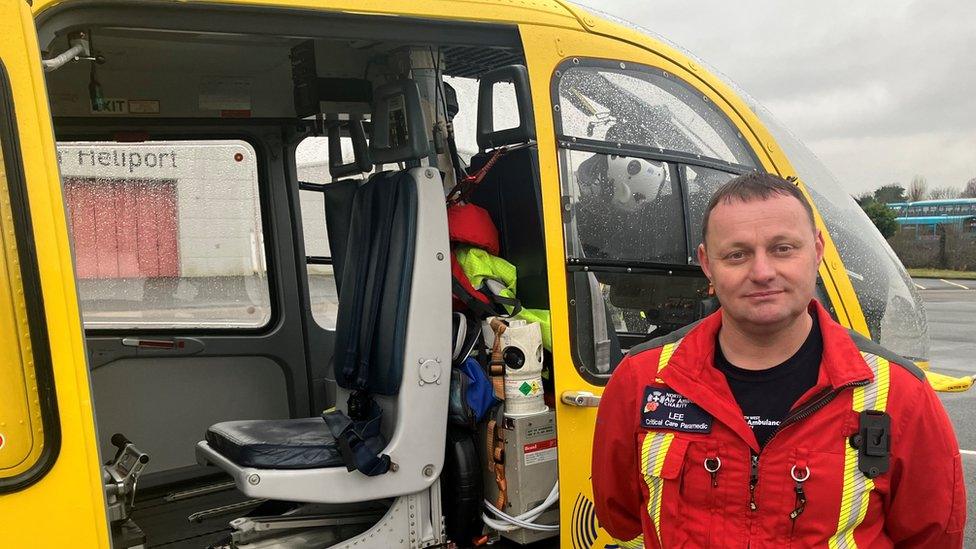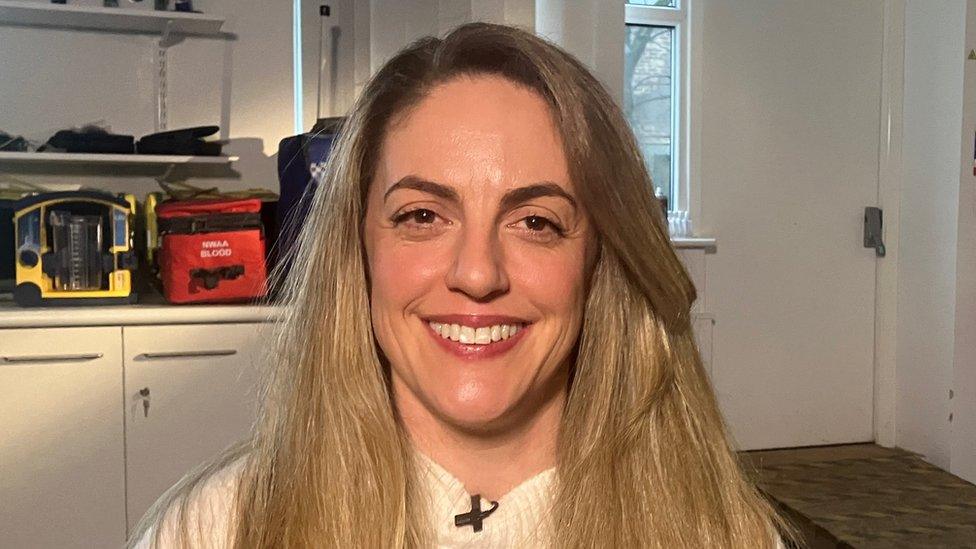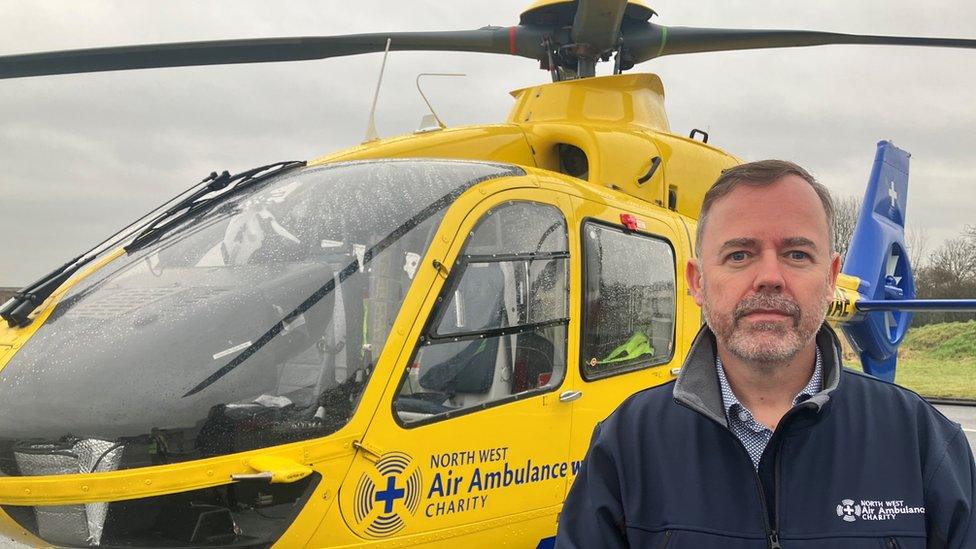'My daughter could have grown up without her mum'
- Published

Air ambulance critical care paramedics like Lee Kirkbright have enhanced surgical skills
When you think of air ambulances, images of paramedics leaping in and out of brightly coloured helicopters probably spring to mind.
And while this was the initial role of the North West Air Ambulance (NWAA) when the charity was formed 25 years ago, nowadays it does much more.
Last year, the NWAA carried out more than 3,000 missions - about 10% up on 2022.
Not all of them involved the service's three helicopters, which are based at Barton Aerodrome in Salford, and in Blackpool.
That is because the charity also has five critical care vehicles, which are deployed in hours of darkness or in poor weather conditions.
Last year nearly a third of call-outs were by road.
The NWAA's aim is to provide seriously ill or injured patients with hospital level care before they even arrive at the Accident & Emergency unit.
This is often, literally, the difference between life and death.

Nicola Chadwick says she would not have survived without the North West Air Ambulance service
One incredibly grateful patient is Nicola Chadwick who, in November 2022, suffered a heart attack while in Clitheroe to see the town's Christmas lights being switched on.
Nicola, who was only 38 at the time, collapsed as she was putting her two-year-old daughter Emily into her car seat.
It was too dark for the helicopter to fly, so the NWAA immediately deployed one of its critical care vehicles, which was on the scene within 20 minutes.
The paramedics, who have enhanced surgical skills compared with most of their NHS counterparts, immediately administered specialist drugs not found in regular ambulances.
"I was unresponsive and had stopped breathing," said Nicola, "and my husband, Ben, began performing CPR.
"I have no memory of what happened but without [the NWAA paramedics] I wouldn't have survived."
One of the critical care paramedics who saved Nicola's life, Lee Kirkbright, recalled: "We set about assisting NHS crews.
"Nicola suffered a second cardiac surest but we managed to get her heart into a beating rhythm again."
He added: "It's crucial that when anyone suffers a cardiac arrest, the brain is protected. In Nicola's case, her brain had been starved of oxygen and she was suffering from agitation.
"So we administered drugs to keep her heart and blood pressure stable. We then gave her more drugs to protect the brain until she got to hospital."

David Briggs is the North West Air Ambulance service's operations director
Nicola was taken to the Royal Blackburn Hospital where she was fitted with an implantable cardioverter defibrillator.
It meant she was able to make it home for Christmas with her family.
Nicola said: "I just feel lucky, really lucky to be here. Things could've been so different. Emily could've grown up without her mum. It's always on your mind."
Each mission typically costs about £4,000 - money which is raised entirely through donations.
Operations director David Briggs said: "We provide a life-saving service seven days a week and it costs £12m a year to deliver that.
"We couldn't do what we do without the generosity of the people of the North West."

Why not follow BBC North West on Facebook, external, X, external and Instagram, external? You can also send story ideas to northwest.newsonline@bbc.co.uk